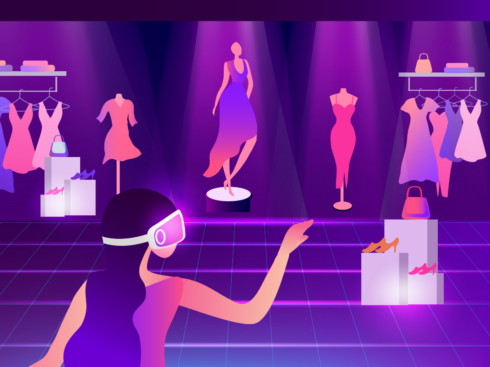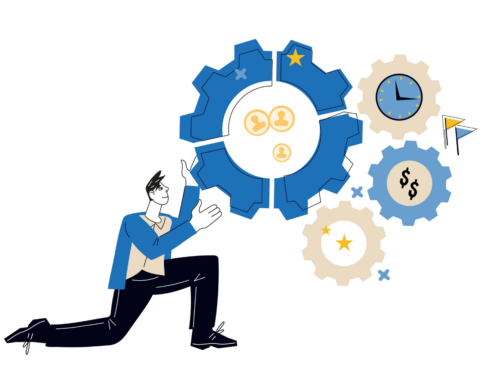
SUMMARY
The technologies’ creators have found ways to keep us coming back for more
The average worker checks e-mail 77 times a day — and sends 4.73 messages, texts, or e-mails during an in-person meeting
It usually takes 23 minutes to return to a task after an unrelated interruption
Many of us are addicted to social media. Whether it be Facebook, Instagram, Snapchat, or Twitter, the technologies’ creators have found ways to keep us coming back for more. Google design ethicist Tristan Harris has called the smartphone a “slot machine in our pocket”: one carrying a litany of addictive applications and fostering harmful behaviors.
Now, that same slot machine is becoming entrenched at work. And it is making our lives more disconnected, more disjointed, less productive, and less satisfying.
This is a relatively new development. Over the past decade, technology adoption flows have reversed, as driven by the smartphone and the widespread popularity of consumer technologies such as social networks and chat.
The copy machine, fax, mobile phone and personal computer and even the Internet started as work tools and then moved into the consumer realm. But, with the advent of the smartphone, employees began to insist on bringing their own devices to work, for personal purposes.
They then won the battle with IT teams to allow them to use these to conduct work business such as making phone calls and sending e-mails, and a wave of companies emerged that built work tools that took social networks and chat systems as their models for inciting addiction and overuse.
Employers these days are all too happy to have their employees addicted to the tools of their trade if it means more time immersed in their jobs.
To take one of the most popular new business applications as an example: Slack uses numerous techniques that encourage workers to pay attention to it as much as possible.
The most aggressive of them is a series of strong warnings to turn on desktop notifications, allowing Slack to pound them with notifications regardless of whether they are actively using the application. The company’s tagline, after all, is “Where Work Happens”: that is, “Don’t leave Slack; you will miss something and fail at your job”.
Slack’s designers have tapped into addictive techniques developed by companies such as Facebook and Twitter— with desktop and e-mail notifications of every mention of our name, and shortcuts to post GIFs in chat channels. There is no malice on their part; the company truly believes that all work should happen inside Slack and that we should all know just about everything happening on its platform and be notified instantly.
Unfortunately, humans can’t easily deal with such flows of information. The barrage of notifications crushes efforts to perform thoughtful work requiring quiet, space, and uninterrupted mental effort.
The average worker checks e-mail 77 times a day — and sends 4.73 messages, texts, or e-mails during an in-person meeting
Slack is not unique: most providers of work technologies, from human resources to document-sharing to systems for customer-relationship management, emphasize some style of interruptive notifications systems to alert us to a new message or other events.
And the result is a blizzard of notifications, and intense pressure (sometimes from bosses) to keep these notifications turned on because ignoring a notification could mean you miss something that someone considers important.
We all know that this is happening, but usually, we are powerless to stop it. And it is our managers who are all too often now bringing in new tools for us to use without thinking through their impact on our time and attention.
This new reality of notification insanity obstructs not only our concentration on individual work but also our communication with one another in person and in virtual conference. In a study of 1,200 office employees in 2015, video conferencing company Highfive found that, on average, 4.73 messages, texts, or e-mails are sent by each person during a normal in-person meeting.
Of millennial respondents, 73% acknowledged checking their phones during conference calls, and 45% acknowledged checking them during in-person meetings. Ironically, the greatest problem that 47% of respondents had with meetings was that co-workers were not paying attention.
And that is on top of the well-known problem of checking for messages far too often.
University of California Irvine researcher Gloria Mark and colleagues found that workers check e-mail an average of 77 times a day — and that checking e-mail constantly tends to increase worker frustration and stress. Additionally, she found that interruptions can increase the total time necessary for completing a task, often significantly.
It usually takes 23 minutes to return to a task after an unrelated interruption — but many workers must switch their attention every 10 minutes.
Statistics on reading texts, chat, and other forms of notifications at the office are harder to come by, but it is clear that the use of these is growing. Slack, for example, has 9 Mn global active users, who, in 2016, used it for an average of 140 minutes per workday. Add that to the 4.1 hours that, on average, workers spend checking their business e-mail per day, and you get the sense that the job has become mostly about responding to chat and e-mail, with a diminishing portion available to do actual work.
A further irony is that even though Slack claims that its technology helps workers to reduce the number of e-mails, studies have shown that both e-mail volume and time spent on it continue to grow — and notification madness along with them.
This creates a cycle of increasing disaffection and disengagement. We spend more and more time doing busy work and less and less time doing the substance of what we really want or need to be doing. Work has become a series of unwanted addictions and useless actions that, at the end of the day, leave workers with nothing to show for the time and energy they have committed to it.
It’s no wonder that surveys show a disturbing increase in the feeling that our jobs are meaningless: increasingly, they are.
[This post appeared first on wadhwa.com and has been reproduced with permission.]


























